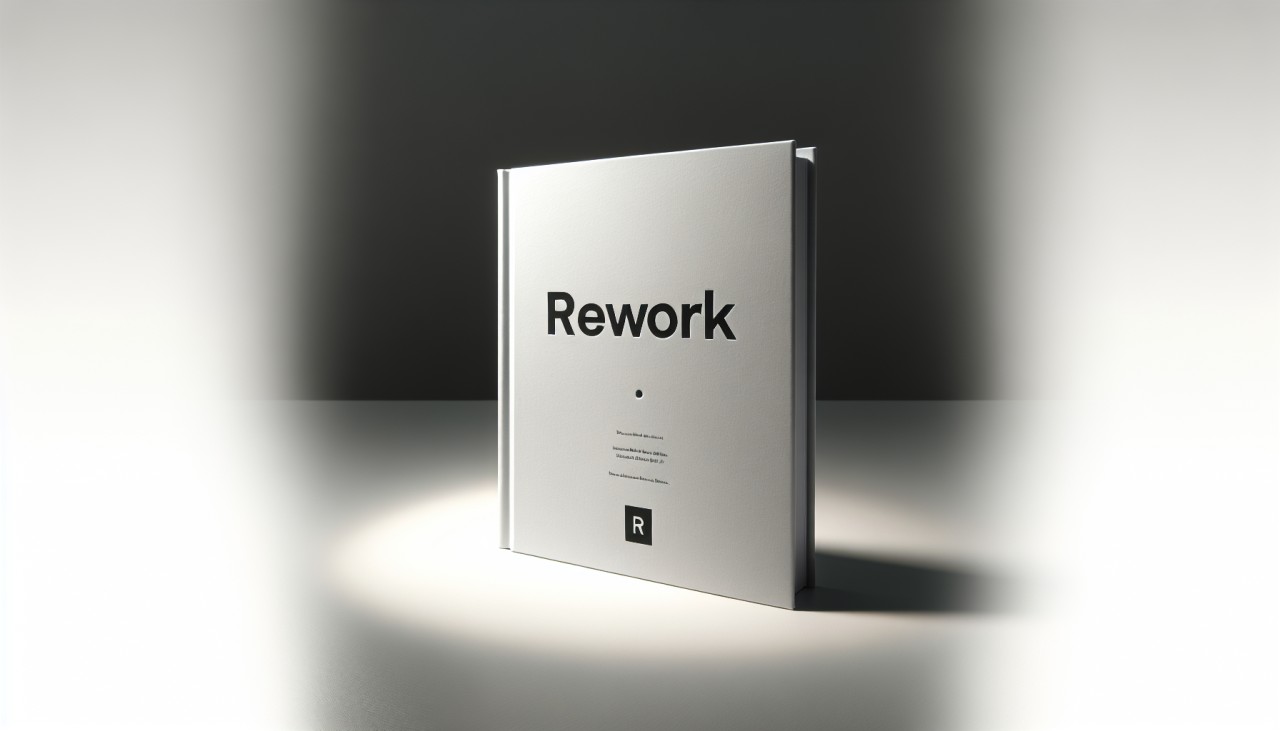In "Rework," Jason Fried and David Heinemeier Hansson challenge conventional business wisdom, urging readers to rethink traditional practices and embrace a more streamlined approach to work. One of the book's central themes is the importance of simplicity and focus. The authors argue that long-term business plans are often speculative and can hinder progress. Instead, they advocate for setting short-term goals and adapting as needed, emphasizing that planning is often just guessing. entrepreneur.com This approach encourages agility and responsiveness to changing circumstances.
Another key insight from "Rework" is the critique of workaholism. The authors contend that productivity is not synonymous with long hours; rather, it's about working smarter and maintaining a healthy work-life balance. They suggest that overworking can drain creativity and lead to burnout, advocating for efficient work practices that prioritize quality over quantity. walturn.com This perspective encourages readers to focus on meaningful work and avoid unnecessary tasks that do not contribute to their goals.
The book also emphasizes the importance of launching products or services quickly to gather real-world feedback. Fried and Hansson argue that waiting for perfection can delay progress and that it's better to release a minimum viable product and iterate based on user input. walturn.com This strategy promotes a culture of experimentation and continuous improvement, allowing businesses to adapt and evolve in response to customer needs.
Meetings are another area where "Rework" offers a contrarian view. The authors describe meetings as "toxic," suggesting that they often waste time and hinder productivity. They recommend minimizing meetings and replacing them with concise, asynchronous communication whenever possible. walturn.com This approach encourages more efficient use of time and resources, allowing teams to focus on delivering value rather than engaging in prolonged discussions.
Saying "no" is also a recurring theme in the book. Fried and Hansson advise readers to decline distractions, unnecessary features, or misaligned clients to maintain focus on core values and objectives. walturn.com This discipline helps prevent scope creep and ensures that efforts are directed toward activities that truly matter.
Key Takeaways
- Planning is often speculative; focus on short-term goals and adapt as needed.
- Productivity is about working smarter, not longer hours; maintain a healthy work-life balance.
- Launch products quickly to gather real-world feedback and iterate based on user input.
- Minimize meetings and replace them with concise, asynchronous communication.
- Learn to say "no" to distractions and unnecessary tasks to maintain focus on core objectives.
- Embrace constraints as opportunities for creativity and innovation.
- Shift focus from startup culture to building a sustainable, customer-driven business.
Example
To apply the principles from "Rework" in your daily life, consider adopting the following practices: - Set Short-Term Goals: Instead of creating long-term plans, establish clear, achievable objectives for the near future. This approach allows you to remain flexible and responsive to changes. - Prioritize Quality Over Quantity: Focus on delivering high-quality work rather than overextending yourself with numerous tasks. This strategy enhances productivity and job satisfaction. - Launch and Iterate: When starting a new project or initiative, begin with a basic version and seek feedback. Use this input to make informed improvements, fostering a culture of continuous development. - Minimize Meetings: Reduce the number of meetings you attend and opt for brief, focused discussions. This practice frees up time for more meaningful work and reduces unnecessary interruptions. - Learn to Say "No": Be selective about commitments and opportunities. Declining tasks that do not align with your goals helps maintain focus and prevents burnout. By implementing these strategies, you can enhance your productivity, foster innovation, and create a more fulfilling work environment.
